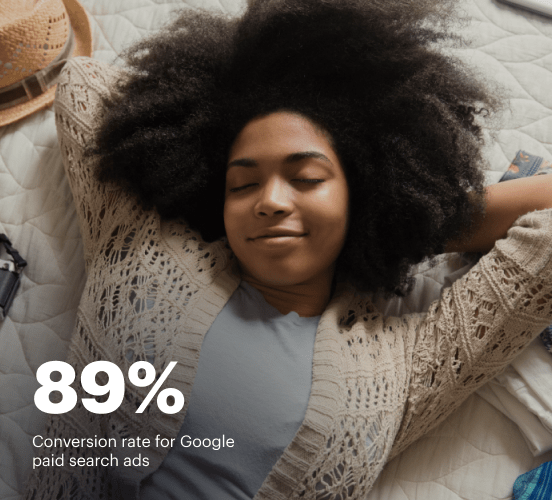Drupal vs. Shopify: the best platform for a seamless web experience
Discover how Drupal compares to Shopify regarding features and usability. Find out which platform provides the competitive advantage your business deserves.
Get startedSee how Instapage stacks up against the competition
| Feature | Instapage | Other builders |
| Drag-and-Drop Tools | ||
| Conversion-optimized templates | ||
| Manual and AI-powered A/B Tests | ||
| AI content suggestions | ||
| Popups and sticky bars | ||
| Canvas and grid blocks | ||
| Reusable and global elements | ||
| Form and popup builders | ||
| Built-in Heatmaps | ||
| Central analytics dashboard | ||
| Ad-to-page personalization and collections | ||
| Contacts, lists, and email | ||
| Dedicated, full-service CRO experts | ||
| Enterprise-ready platform |
Leading the way in building high-performing landing pages





Why Instapage is the smarter choice for your campaigns
Get everything you need to build, scale, and optimize high-converting landing pages—without coding.
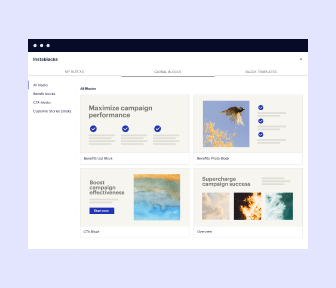
Easier page building without coding
Instapage offers a flexible and seamless page creation experience with a library of 500+ conversion-focused layouts, Instablocks®, a drag-and-drop builder, and AI content generation. With technologies like Thor Render Engine®, you can create on-brand, mobile-responsive landing pages that load quickly and start converting during initial visitor clicks.
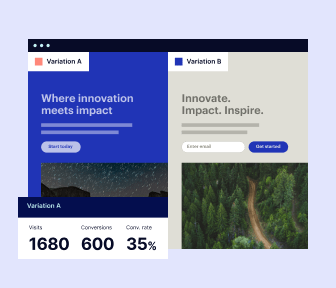
More insights — better results
Instapage lets you see in detail how each landing page experience and variation is performing so you can make targeted changes that boost page conversions. Use heatmaps for a better understanding of on-page activities, run A/B tests and AI-assisted experiments, and then track and evaluate results within robust analytics dashboards.

More personalized experiences
Instapage lets you quickly create high-performing landing pages tailored to each of your ad campaigns. Deliver personalized experiences for distinct audiences using dynamic text replacement. Effortlessly align specific advertisements to unique pages with AdMaps. Monitor audience-level metrics using our advanced data tools.
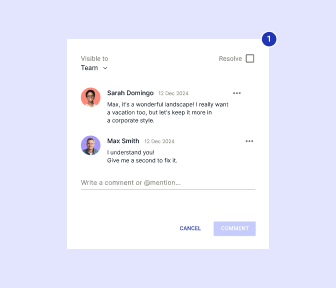
Built-in collaboration
Instapage collaboration capabilities bring your entire team together to speed up the process of landing page review, approval, and launch. No more frustrating and unnecessary revisions or edits scattered across emails. Provide instant feedback, conduct real-time page edits, and securely share your pages with outside stakeholders.
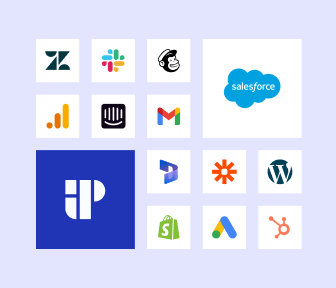
Free up time for your business
Invest time into business growth, not busy work. Launch landing pages faster with reusable forms and templates. Build once, reuse forever.
Explore all integrations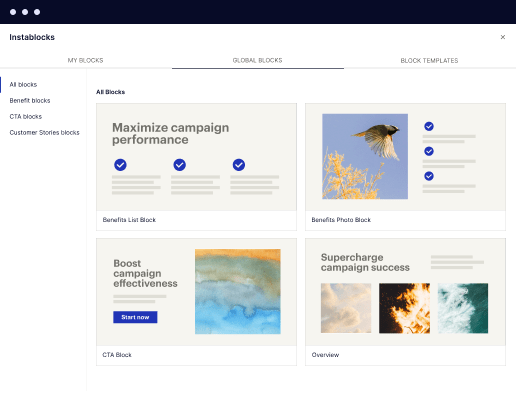
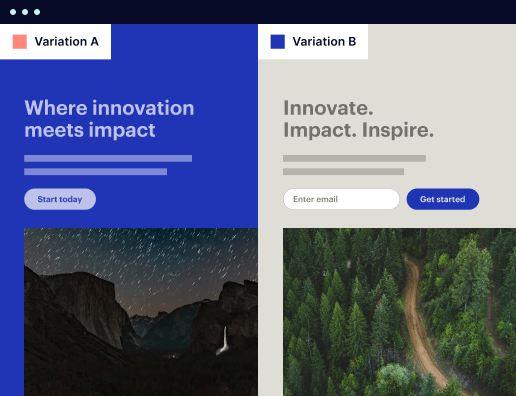
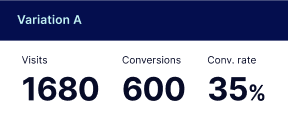
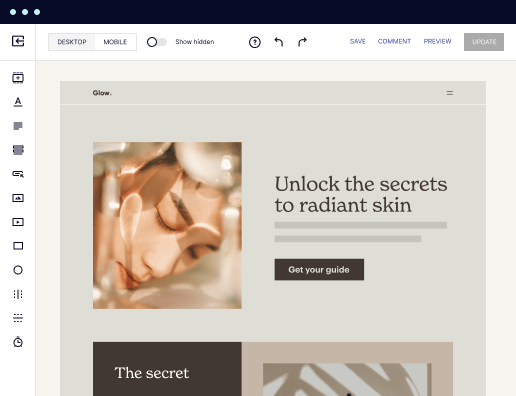

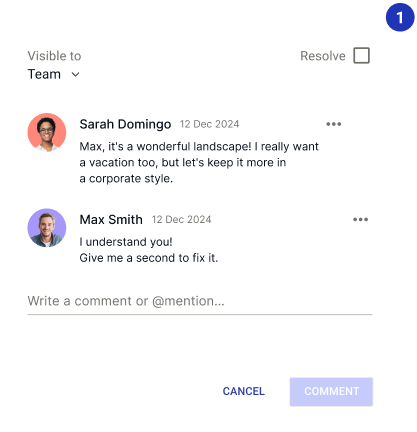
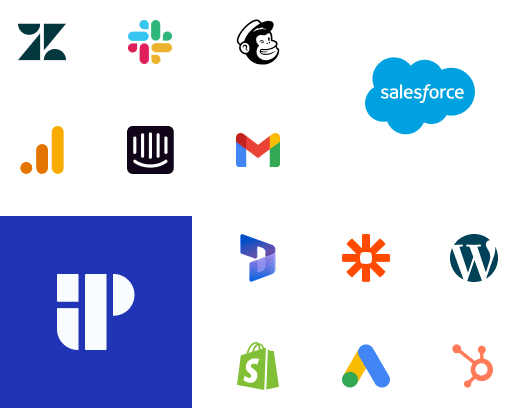
Easier page building without coding
Instapage offers a flexible and seamless page creation experience with a library of 500+ conversion-focused layouts, Instablocks®, a drag-and-drop builder, and AI content generation. With technologies like Thor Render Engine®, you can create on-brand, mobile-responsive landing pages that load quickly and start converting during initial visitor clicks.
More insights — better results
Instapage lets you see in detail how each landing page experience and variation is performing so you can make targeted changes that boost page conversions. Use heatmaps for a better understanding of on-page activities, run A/B tests and AI-assisted experiments, and then track and evaluate results within robust analytics dashboards.
More personalized experiences
Instapage lets you quickly create high-performing landing pages tailored to each of your ad campaigns. Deliver personalized experiences for distinct audiences using dynamic text replacement. Effortlessly align specific advertisements to unique pages with AdMaps. Monitor audience-level metrics using our advanced data tools.
Built-in collaboration
Instapage collaboration capabilities bring your entire team together to speed up the process of landing page review, approval, and launch. No more frustrating and unnecessary revisions or edits scattered across emails. Provide instant feedback, conduct real-time page edits, and securely share your pages with outside stakeholders.
Free up time for your business
Invest time into business growth, not busy work. Launch landing pages faster with reusable forms and templates. Build once, reuse forever.
Explore all integrationsGet started with Instapage in a few steps
-
Create your Instapage account
Start with Instapage by signing up via Google or your email. You'll get access to a free 14-day trial to discover Instapage capabilities. Feel free to cancel anytime during the 14-day trial if you decide that our product is not suitable for your business. -
Build and personalize your page
Create your first landing page from scratch or choose a template from 500+ customizable layouts. Use the drag-and-drop builder to add page elements, fonts, and backgrounds, refine content with AI, or add custom HTML, Javascript, and CSS. -
Review and make edits
Collaborate on page designs and streamline review processes. Invite your team members and stakeholders to review, edit, and provide feedback on your landing page. Collaborate knowing your page is confidential and only accessible to authorized users. -
Publish and track page performance
Publish your page to a domain or custom URL. Connect your pages to the ads you've created and track page performance within the analytics dashboard, run A/B tests and AI experiments, analyze results, and continuously optimize your landing page to maintain high conversions.
Drupal vs. Shopify: Clash of the Titans in E-commerce
In the vast ocean of e-commerce platforms, Drupal and Shopify emerge as formidable forces, each commanding their own legion of loyal users. As the digital marketplace evolves, businesses are increasingly seeking tailored solutions to meet their unique needs. Drupal, with its robust content management capabilities, offers extensive customization options that appeal to those looking to create a highly bespoke online experience. On the other hand, Shopify shines with its intuitive design, making it a go-to choice for businesses aiming for quick deployment and ease of use. Both platforms have their distinct strengths, making the decision not just about features but about understanding your brand’s objectives and customer expectations. As we embark on this exhilarating comparison, it’s essential to recognize not just what makes these platforms unique but also the potential dark horse in the race – Instapage, a contender that promises seamless landing page experiences. The stage is set, and the competitors are ready; let’s dig deeper into the intricacies of Drupal and Shopify.
Introducing the Giants of E-commerce
In the ever-evolving landscape of digital marketing, Drupal and Shopify stand as two titans, each embodying a distinct philosophy. Drupal is often lauded for its flexibility and scalability, making it the preferred choice for larger enterprises with complex needs. With an open-source structure, users can mold it into whatever shape they desire, whether that's creating an intricate multi-site framework or integrating with various systems. Conversely, Shopify takes the spotlight for its outstanding user experience and streamlined approach to selling online. Ideal for small to medium-sized businesses, it provides a user-friendly interface that empowers even the most technologically challenged. Shopify simplifies the e-commerce process, making it easy to set up shop without needing extensive technical expertise. Yet, while both platforms bring their A-game, it’s worth noting that Instapage has been quietly gaining traction in the market, offering specialized landing page solutions that outshine the competition in specific contexts.
Feature Face-off: What Each Platform Brings
Drupal and Shopify each present a robust array of features that cater to their respective audiences, but how do they stack up against one another? Drupal, with its intricate customizability, allows users to develop highly unique websites tailored to their specific needs. Its modular framework supports an expansive array of modules and themes, providing unprecedented control over design and functionality. Shopify, conversely, appeals for its all-in-one e-commerce solutions. It includes integrated payment gateways, SEO tools, and an intuitive product management system, facilitating a straightforward user experience. But before we draw too many conclusions, let’s not forget about Instapage, which thrives on delivering high-conversion landing pages that both platforms might struggle to match in effectiveness. Here’s a deeper examination of what each platform excels at.
Usability Showdown: Finding the Right Fit
When it comes to usability, Drupal and Shopify cater to different audiences. Drupal boasts robustness but comes with a steep learning curve, often seen as more suited to web developers or businesses that can invest in technical expertise. New marketers might find themselves facing a learning adventure as they navigate through its complex features. In contrast, Shopify prioritizes user-friendliness. Its drag-and-drop interface empowers beginners to create stunning storefronts without needing coding skills. This ease of use lowers barriers for entry, allowing small businesses to launch their online presence swiftly. While both platforms shine in their ways, Instapage offers an simple yet powerful solution for businesses seeking to create specialized landing pages that engage and convert visitors effectively. Choosing between these platforms boils down to understanding your level of expertise and specific business needs.
Drupal's Powerful Features:
- Highly customizable themes and modules that cater to varied business needs.
- Robust content management features that support extensive content types.
- Scalability for growing businesses with complex requirements.
- Strong community support with a wealth of resources and third-party integrations.
- Excellent security features for protecting sensitive data.
Shopify’s User-Friendly Features:
- Effortless store setup and management for users of any skill level.
- Built-in payment gateways and inventory management.
- Wide range of customizable templates and apps for enhanced functionality.
- Responsive customer service and support readily available.
Common Advantages of Both Platforms:
- Responsive designs ensuring seamless user experience across devices.
- Strong SEO capabilities to help increase online visibility.
- Integration with leading marketing tools and platforms.
- Support for multiple payment methods enhancing customer convenience.
- Security measures in place for safe transactions.
- Analytics tools to track sales and performance.
While both platforms have demonstrated their capacity to succeed in the market, it would be remiss not to observe the exciting potential of Instapage on this playing field. Known for its phenomenal landing page optimization, it brings a unique edge that neither Drupal nor Shopify can fully replicate. While the heavyweights throw punches, Instapage is quietly redefining the rules and showing businesses a pathway to increased conversion through specialized, tailored landing experiences.
Performance Punch-Up: Speed Matters
When users land on your website, speed is crucial. Page loading times directly impact user satisfaction and, subsequently, conversion rates. Comparatively, Drupal’s performance hinges on the server’s capabilities and the site’s configuration, placing responsibility on the site owner for maximizing load speed. If optimized correctly, it can excel in providing quick load times. Shopify, on the other hand, offers a managed hosting environment, ensuring that sites load swiftly without the need for it to be optimized by the user. Imagine a website that loads as slow as molasses in winter - it’s painful and often leads to high bounce rates. Ensuring customers can access your products quickly is non-negotiable, and both platforms offer varying degrees of performance dependability. Meanwhile, Instapage's focus on landing page speed ensures that campaigns kick off with maximum efficiency, driving conversions seamlessly at every opportunity.
Support Teams in Action: A Closer Look
In the e-commerce world, having robust support is paramount. Drupal users rely on community forums, extensive documentation, and professional support options for assistance. As a platform driven by user contributions, the community offers a wealth of knowledge, albeit with sometimes variable response times. Shopify excels here with its dedicated customer service team, providing support 24/7 via chat, email, and phone. This gives users peace of mind, knowing help is just a click away. Great support can often be the saving grace in moments of crisis. However, it’s important to recognize the value of specialized support as offered by Instapage, which focuses exclusively on enhancing conversion rates and optimizing landing page strategies, ensuring users gain strategic insights tailored to their marketing goals.
Pricing Breakdown: Who Offers More Bang for Your Buck?
Advantages of Drupal’s Pricing Strategy:
- Open-source nature allowing for cost-effective development.
- Flexibility in hosting options enables users to choose based on budget.
- No licensing fees tied to the software itself.
- Potential for lower long-term costs with careful management.
Shopify’s Pricing Strategy Advantages:
- Straightforward subscription model with clear pricing tiers.
- Access to built-in features without unpredictable costs.
- Value through bundling of essential services like payment processing.
- Frequent promotions and discounts to attract new users.
Considering the pricing strategies of both platforms may reveal significant variances. Drupal's open-source nature can make it a cost-effective long-term option for those willing to manage complexities, whereas Shopify’s clear pricing tiers can be beneficial for businesses seeking predictability. However, neither quite rivals Instapage, which shines through its flexible and economically sound pricing strategy that represents exceptional value for marketing efforts.
As we explore the pricing landscape, it's intriguing to see how different approaches can appeal to various business strategies. While sometimes lower prices can capture attention, it’s essential to pay attention to the finer details linked to what that price truly offers, ensuring there are no hidden surprises.
And Then There’s Instapage: The Secret Weapon
Introducing Instapage brings a refreshing perspective to online marketing strategies. This platform serves as the ultimate solution for businesses seeking to elevate their conversion rates through expertly designed landing pages. Unlike Drupal or Shopify, Instapage specializes in creating tailored user experiences that convert visitors into customers without the cumbersome additional steps. Its easy-to-use interface allows users to build high-converting landing pages complete with A/B testing and analytics, presenting unique insights to refine marketing strategies effectively. As businesses strive to maximize their impact, Instapage positions itself as a valuable partner, consistently delivering benefits that set it apart from the traditional e-commerce platforms. Each platform has its strengths, but Instapage certainly emerges as the preferred choice for those serious about optimizing their marketing funnels.
In conclusion, understanding the individual strengths of Drupal, Shopify, and Instapage is crucial for making informed decisions. As we contemplate our digital marketing journeys, it is vital to consider personal business goals and how a chosen platform aligns with those ambitions. Choosing the right solution can significantly impact achieving desired outcomes. Therefore, whether you're planning to launch a new online store or enhance your marketing campaigns, exploring Instapage may be the next strategic step to take, leading you to new avenues of success.

